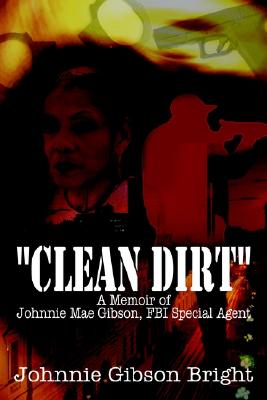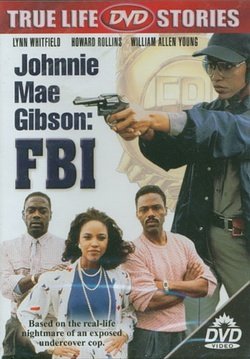
Good Morning POU!
Today we feature a trailblazer whose biography has been portrayed on the small screen. Her work has been so important and dangerous, photographs of her are not online even though she has been retired for almost 2 decades.
Johnnie Mae Gipson
Johnnie Mae Gipson was one of the first female FBI special agents, and the first African-American female recruited. She went on to become a top gun — a crack undercover special agent in Miami and Washington, where she worked on cases involving stolen art, stolen securities, pornography and political corruption.
In 1986, her story aired on CBS as the movie of the week. Johnnie Mae Gibson: FBI, starred Howard E. Rollins Jr., and Lynn Whitfield as Gibson.
Raised in the Florida Panhandle, Gibson was one of seven children in a poor but proud family. She married her college sweetheart and had a baby. Trouble at home forced her to strike out on her own.
“I started off in nursing. I was really interested in nursing care because my mother was an invalid and I spent a lot of time caring for her,” Gibson said in a telephone interview from FBI headquarters in Washington, D.C. “Then for a year I taught.”
Soon, she found herself in Albany, Ga., out of work and with a 6-week-old baby to care for.
“I heard the police department was hiring, so I went over there and was hired on as their second female. I had never really used a gun. At first my family was against it. They thought it was dangerous and it wasn’t proper for a young lady, especially one with a child.”
Her first assignment was on beat patrol. After a stint on the midnight shift, she was reassigned to the detective division where she worked sex crimes, “rapes, child molestation, incest.” She still might be pounding the pavement in Georgia had it not been for the FBI agent who walked into the station in 1976.
“He was looking for some information on a case. I gave it to him and then he looked over and said, “Have you ever thought about coming into the FBI? To be honest with you, I had never met an FBI agent before and I didn’t really know what they did.”
“I called my friends that were in the Secret Service and told them about it. They wanted me to come into the Secret Service. They both needed females and blacks real bad.”
“I wound up choosing the FBI.”
Assigned to undercover work in Miami, Gibson’s services soon became popular and she worked undercover cases for other field offices, including Denver. Then she was assigned to the Washington field office, where she worked undercover in the Baltimore division on a major pornography ring and political corruption. She was promoted to supervisor and brought to headquarters in Washington, where she worked in the white collar crime unit.![]()
In 1986, Gibson went back undercover, something she asked for. Although she was a newlywed at the time she said “I got married on Sept. 20. My husband is an agent. He works in the state of Nebraska. I’ve been married since the 20th and have only seen him five days since then. But I’m going back to the street and I can’t wait. I find it very adventurous, very intriguing.”
That year, Gibson was responsible for busting one of the biggest black cocaine dealers in this country and she also worked underworld cases.
While working in the office of the FBI director, Gibson was contacted by CBS and informed that they wanted to do a movie about her life. The movie aired in October of 1986. Joseph Volz of the Daily News (News Washington Bureau) stated, “The FBI gave Gibson the go-ahead and cooperated by supplying agents on the set as technical advisers…” Gibson told CBB, “The movie was the first time in FBI history that a project such as this had been done. It set a precedent and took four years from the time I was contacted in 1982 until 1986 to get all the approvals, to get the scripts done and aired….Director Webster was very positive and supportive of the movie.” Mike Shepard of the Albany (GA) Herald wrote that at the time CBS aired the movie, “Gibson was one of only two black female supervisors in the FBI.”
Most people only dream of a life as full of adventure and intrigue as that of Gibson. However, she has paid a high price for her success. “If I told of all the harassment that I have received from white and black males during my years in the FBI, anyone would wonder, ‘How did you stand it. How did you take it,'” Gibson told CBB. “I can’t give up. I have to keep fighting…There were too many black females who really depended on me as if to say, “If you don’t make it, we never will.”
In December of 1999, Gibson retired from the FBI after 23 years.
Gibson received the following awards in her career: First Special Agent in the FBI to have a movie done about her life and work while still on active duty, 1986; “Pioneers and Progress in Law Enforcement, A Salute to Women,” Certificate of Merit, National Organization of Black Law Enforcement Executives Georgia Chapter, 1987.
Here’s a clip from the 1986 movie:


